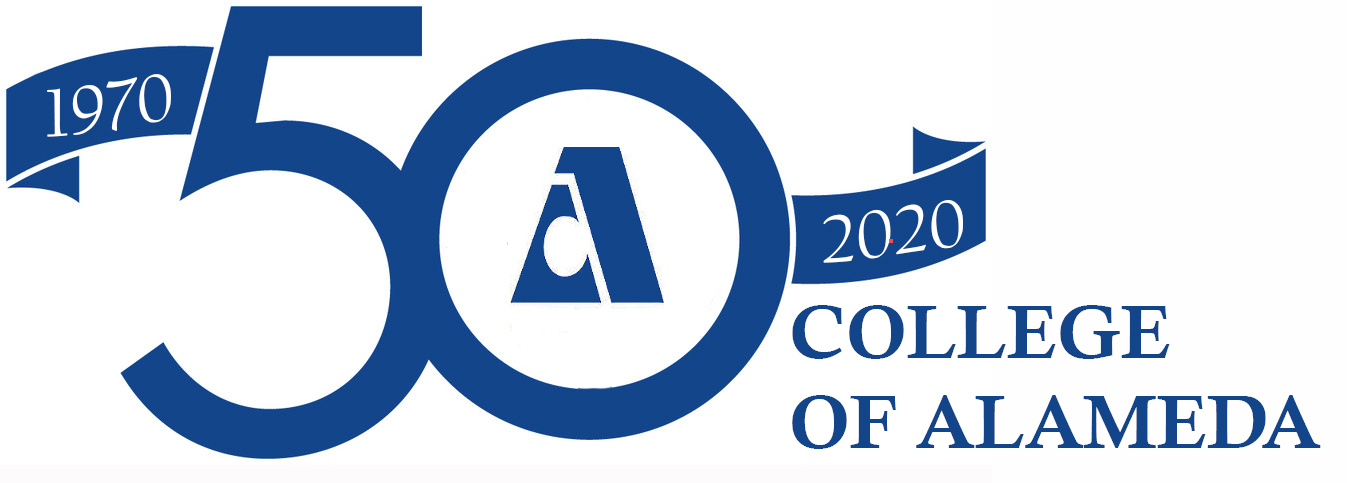Articulation
Who We Are
Articulation is the process that connects two educational institutions in order to help students make a smooth transition from the community college to the college or university without having to complete duplicate coursework. During this process, courses at the community college are identified as being comparable to those in lower division at the university. This allows students to fulfill a lower division university requirement by completing an identified comparable course or “articulated course” at the community college. For more information, please see FAQs below.
Our Services
FAQs
Simply stated, articulation deals with how courses transfer from one college to another. Specifically, articulation is the process of establishing which courses offered at College of Alameda (CoA) are comparable to, or acceptable in lieu of, courses offered at four year colleges and universities. The purpose of articulation is to facilitate the successful transfer of students from the community colleges to the baccalaureate colleges and universities.
Each college or university has its own program requirements. These requirements vary with the student’s intended major. An articulation agreement is an agreement, usually with a four-year institution, that specifies which courses may be transferred to meet elective credit, general education, or major requirements.
- Transfer Credit Agreements: These agreements indicate which courses will transfer for university credit, at a minimum. Courses that are approved for transfer credit do not necessarily count toward general education or a major at the university. CoA courses that transfer for credit to California State University or University of California (also known as the UC Transfer Course Agreement – UC TCA) are identified in the COA catalog at the end of the course descriptions, or on the ASSIST web site.
- Course-to-Course Agreements: The purpose of a course-to-course agreement is to determine if a specific course taken at one college will satisfy a requirement at another college. For instance, if a community college course is approved as “comparable” to a university course, it may fulfill the same general education and major preparation requirements that the university course does.
- General Education:
1) Intersegmental General Education Transfer Curriculum (IGETC): (IGETC) is a general education program which community college students can use to satisfy lower-division general education requirements at the CSU or UC systems without the need to take additional lower division general education requirements after transfer. IGETC is often not recommended for high-unit majors, like engineering.
2) CSU General Education-Breadth (CSU GE): CSU GE is a general education curriculum that identifies courses that students may take to fulfill the lower division GE requirements for the CSU campuses.
3) Campus-Specific General Education: Students may opt to follow the general education pattern specific to a university campus. Articulation agreements also exist between COA courses and general education requirements at UC campuses and private colleges and universities.
- Major Preparation: Major Preparation agreements specify courses that meet the lower division requirements for a major at a four-year college or university.
- Course Identification Numbering System (C-ID): C-ID is a statewide numbering system that can be used to determine course equivalency between California colleges. If two courses from two different colleges share a specific C-ID number the courses can be considered “equivalent” so that they can be used in lieu of the other college’s course to meet college degree, certificate and prerequisite requirements. However, this equivalency does not extend to transfer General Education (e.g., IGETC, CSU GE) or articulation for a major at a university campus. Course articulation for transfer to UC and CSU can be found at ASSIST.org.
C-ID is still relatively new, but continues to grow and expand. COA courses that have been approved for C-ID to date are listed at https://www.c-id.net/course_compare.html
CoA maintains written articulation or course transfer agreements with many colleges and universities. These agreements are approved by the transfer college faculty and specify how courses will be accepted at the transfer institution. Students who wish to transfer need to become familiar with articulation agreements found on the many websites listed below (note: transfer students are strongly advised to speak with a CoA counselor and visit the Transfer Center):
ASSIST (Articulation System Stimulating Interinstitutional Student Transfer) is the official repository of transfer information for California’s public college and universities. ASSIST maintains current articulation agreements that identify which courses can be applied for elective, general education and major preparation credit when a student transfers from a California Community College to a CSU or UC campus. The ASSIST website offers easy access to a single database.
- CSU General Ed Advising Sheet
Of the 48 total semester units needed to complete the CSU General Education-Breadth requirements, 39 lower division units can be completed at COA. The remaining 9 units must be completed in upper-division coursework at the CSU campus. CCSF courses that have been approved for meeting the lower division general education requirements for all California State University campuses can be found on ASSIST. This information has also been summarized on the CSU General Ed Worksheet.
- IGETC Advising Sheet
Transfer students can follow the IGETC curriculum to satisfy lower-division general education requirements at the CSU or many colleges in the UC system (generally not advised for Engineering or high-unit science majors). CoA courses that have been approved for IGETC can be found on ASSIST. This information has also been summarized on the IGETC Worksheet.
- Private or Out-of-State Articulation
Information on how CoA courses transfer to private or out-of-state colleges and universities can be found on the Other Colleges page of the articulation website. The Articulation with CoA link connects to articulation agreements with private institutions in California, as well as public and private colleges outside of California.
Articulation
Monday – Friday: 10 – 4:30pm

